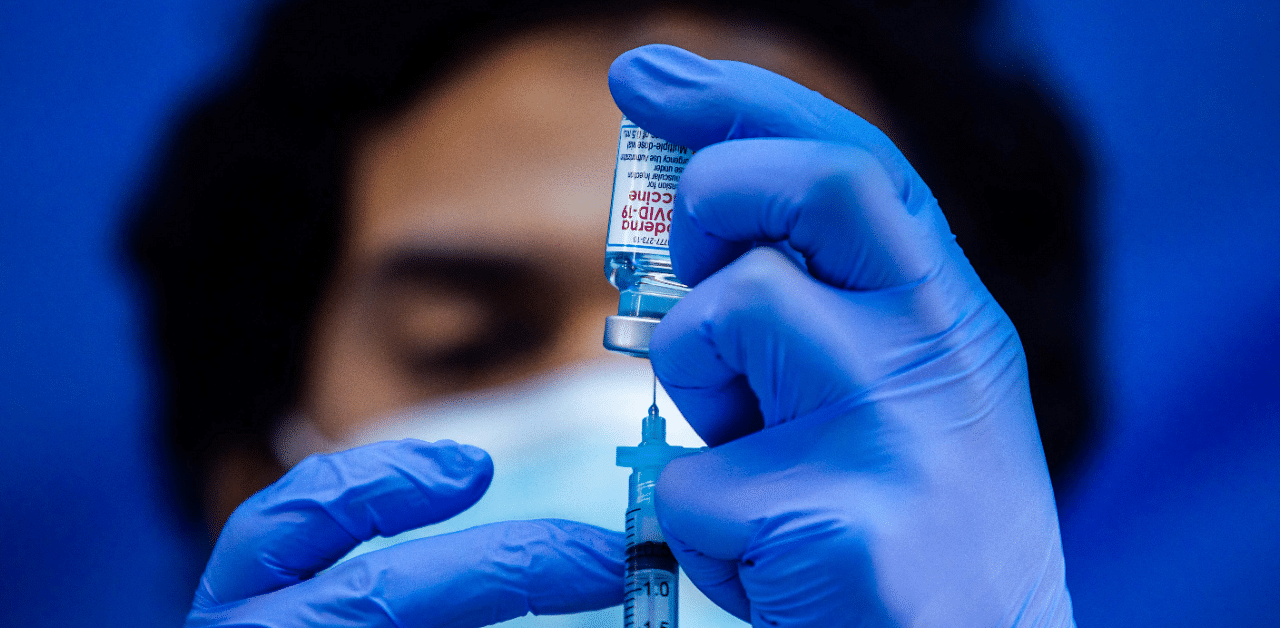
The US on Sunday assured India and its people of support during the trying second wave of coronavirus which has been devastating the country over the past month. The Joe Biden administration said that it was "determined to help India in its time of need." and is set to send necessary life-saving medical supplies and equipment to help India fight the virus.
However, limited exports from the US have been denting vaccine manufacturing in India. Vaccine makers here, including Serum Institute of India CEO Adar Poonawalla, had asked the US to lift the embargo on the export of raw materials to increase production.
Here's a look at what the embargo was and how it hurt India's vaccination program.
US export ban
US President Joe Biden invoked the US Defence Production Act earlier this year which empowered him to order domestic businesses and companies to prioritise federal contracts and US-based projects. The provisions of this act also include incentivising domestic companies to ramp up production and supply of critical materials for consumption in the US.
President Donald Trump had used the same Act at the beginning of the pandemic to increase the production of supplies like ventilators for the US and limit exports of materials. On January 21, after coming to power, Biden invoked the Act to make available critical materials for the production and distribution of vaccines to US companies like Pfizer and BioNTech. Due to this decision, the US could not meet its export commitments.
What are these raw materials?
It is not immediately clear which materials are blocked and which companies have been instructed to focus on the US. An average company reportedly uses over 9,000 different materials to make the vaccine.
But according to an Indian Express report, some of the materials include a bioreactor bag, which is a plastic disposable bag used to grow cells used to cultivate viruses needed for the vaccine, a filter used to purify and sterlise vaccines and cell culture media which is a gel used to grow cells in labs, among others.
The US's decision to limit exports has hit major vaccine manufacturers around the world, all of whom require the aforementioned materials, including India's SII that produces Covishield and Covovax, a Coivd-19 vaccine that has been developed by Novavax, USA, and upscaled by SII.
The report quoted Poonawalla as saying that the US restrictions ended up halving the number of doses of Covovax that the company can stockpile.
Not just Covishield's makers, but Bharat Biotech MD Dr Krishna Ella, maker of Covaxin, said that supply logistics for vaccine makers have been impacted due to the US's curbs. Bharat Biotech faced an acute shortage of the component adjuvant used in the Covid-19 vaccine.
Dr Ella noted that some raw materials could not be obtained from the US due to certain restrictions imposed by that country, said such problems needed to be anticipated in the future.
India was finding it difficult to rope in an alternative country for its needs. Regulatory hurdles in other countries may also have slowed down the process further.
The United States, however, will soon be easing the restrictions it imposed on the export of some raw materials required to augment the production of the Covid-19 vaccines in India, where the raging second wave of the pandemic is wreaking havoc.
President Joe Biden’s National Security Advisor Jack Sullivan spoke to his counterpart in New Delhi, Ajit Doval, over the phone and conveyed to him that the US had already identified sources of specific raw materials urgently required for manufacturing AstraZeneca’s Covishield vaccines in India.
He also assured Doval that the raw materials would immediately be made available for India, according to the spokesperson of the US National Security Council, Emily Horne.